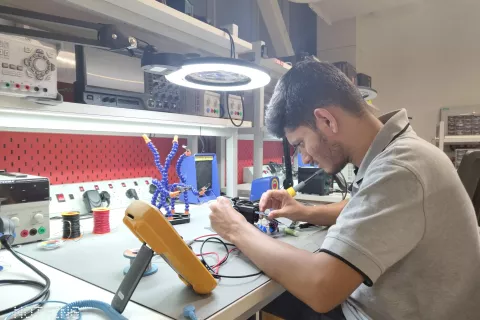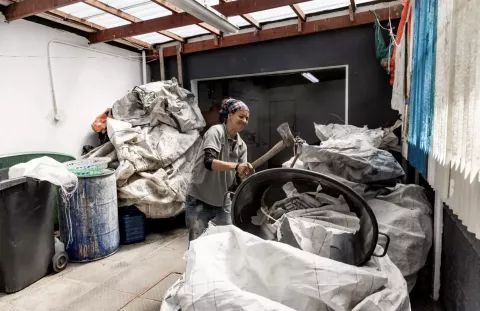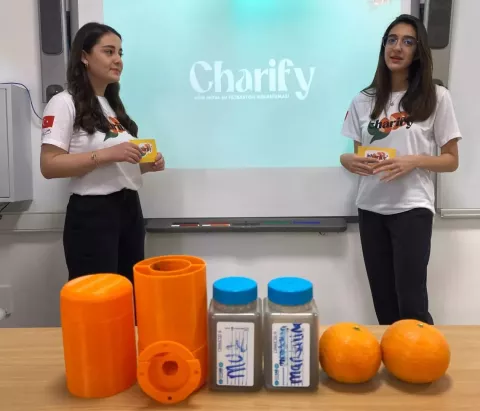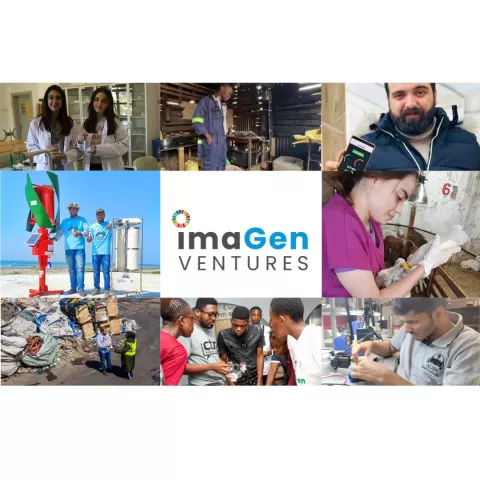Gathering of a #GenerationUnlimited (#GeneraciónÚnica) in Argentina
First regional students and teahers meetings of Technology-based Rural Secondary Schools (TECH-RSS)
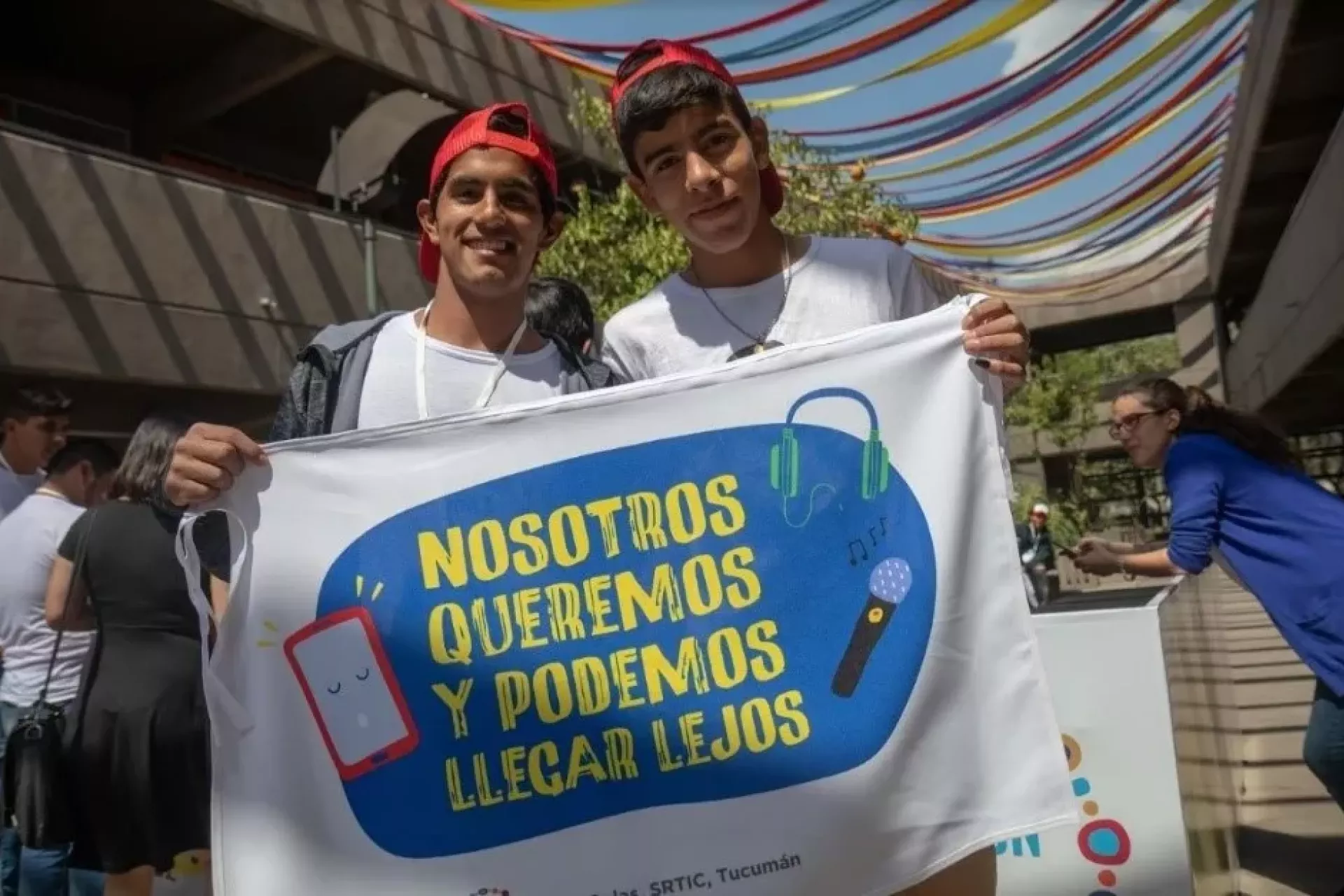
These are adolescents living in remote rural communities from provinces of the north of Argentina. They are about to finish secondary education thanks to this innovative educational model. They attend school every day accompanied by a teacher coordinator and also, in some cases, by an indigenous community facilitator. Teaching and learning are supported by different digital technologies as educational platforms, internet connectivity, school servers. The full team of teachers of the curricular areas are based in the urban headquarter, where they design the classes, share assignments with their students and follow up on their progress.
This is #GenerationUnlimited (#GeneraciónÚnica): the multisectoral global platform that supports and recognizes Technology-based Rural Secondary Schools as an innovative model to ensure the right to education for all girls and boys who live in remote locations.
Brought together in two Regional Meetings –October 2 and 3 in Tucuman and October 9 and 10 in Misiones-, more than 400 teenage boys and girls and their teachers gathered for two intense days to share activities, learnings, feelings and experiences with students from other rural schools and other provinces.
A delegation of 350 adolescents, coordinators of technology-based schools, teachers and school heads from remote rural communities of the provinces of Salta, Jujuy and Tucuman arrived to the meeting in Tucuman. Likewise, 250 teenage boys and girls, teachers and coordinators from rural communities of the provinces of Misiones, Chaco and Santiago del Estero attended the meeting in Misiones. A delegation of 10 students and 3 teachers traveled from the Virtual Rural School of Rio Negro, Patagonia, which inspired the model of Technology-based Rural Secondary Schools, to take part and share their experience and learning, as well as to tell how it is to study in the rural south of our country.
At the start of the meeting, they were welcomed by province authorities. Then, they were able to recognize themselves in the photos previously sent by their coordinators, and received the news that Tini Stoessel was now the local champion of #GeneraciónÚnica: https://www.unicef.org/argentina/generacion-unica
Video of Tini Stoesel in Pucará, Salta to imbibe https://youtu.be/tZ-l5fZ8YNw
From Robotics to Digital Content
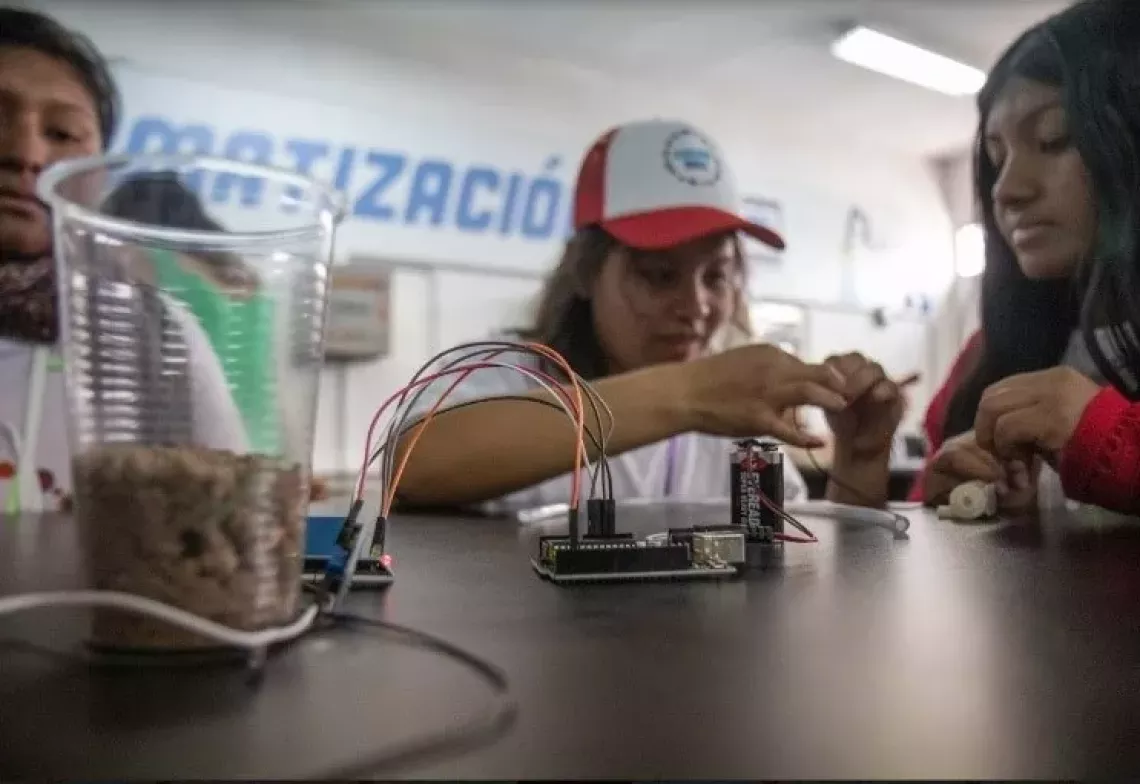
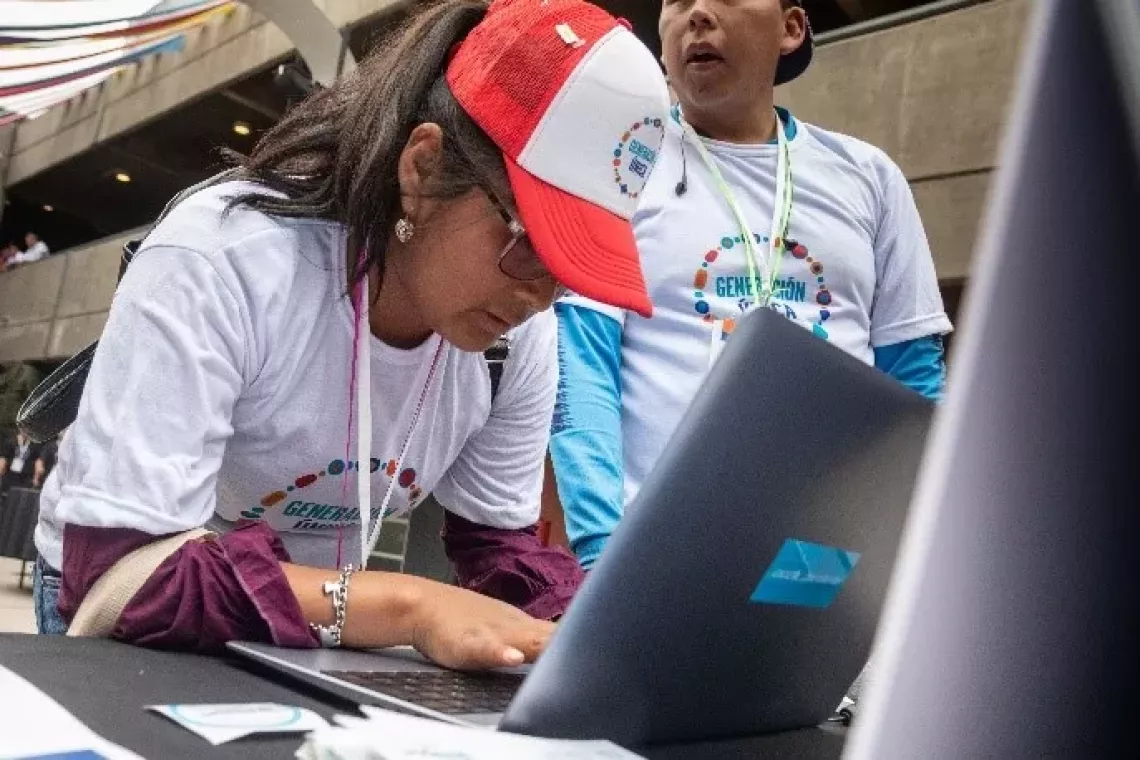
Among the experiences the adolescent girls and boys shared during the meetings, they learnt how to edit an article in Wikipedia --revising and adding information about their own communities--, they worked on digital life, debated on concepts to communicate their ideas, made their first steps in the programming of video games and audiovisual productions, built biodigesters, learnt about water use at the orchard, about the use of natural resources and robotics. Organized in groups from the different locations and provinces, following each workshop, the girls and boys took part in plenary sessions where they shared what they learnt and how they felt.
Also, 50 girls and boys became U-reporters, joining a UNICEF platform (link to U-report) to make their voices heard and considered when decisions are made in relation to policies that impact them.
Topics that interest them
Before they embarked on their journey to Tucuman and Misiones, they knew that they would be the protagonists of the meeting. During the weeks prior to their journey, they received assignments so that their ideas could be considered in the activities. What is your favorite project at school? What subject areas would you like to work on during the gathering? What are your expectations?
Another main purpose of the regional gatherings was to hold the first meeting of the Adolescent Council of Technology-Based Rural Secondary Schools. The Adolescent Council promotes youth engagement and full participation. The delegates of each technology-based secondary school coordinated the exchanges of all the boys and girls present, debated on the topics they had suggested to discuss, and offered proposals to enhance their schools and communities. Among issues that were discussed were sexual education and adolescent pregnancy, gender violence, discrimination, future, vocation and opportunities were brought when thinking about the school they want and what they need to assure fulfillment of their rights. .
The boys and girls made their proposals: “We would like to have the opportunity to teach the adults of our community to read and write”, “we would like to have talks and workshops to promote gender equality”, “that all technology-based schools should have comprehensive sexual education, because we are seeing that boys and girls from other schools don’t have it”, “to be able to share more moments like this with our peers”, “we would like to make improvements to our school, to make it bigger and greater”.
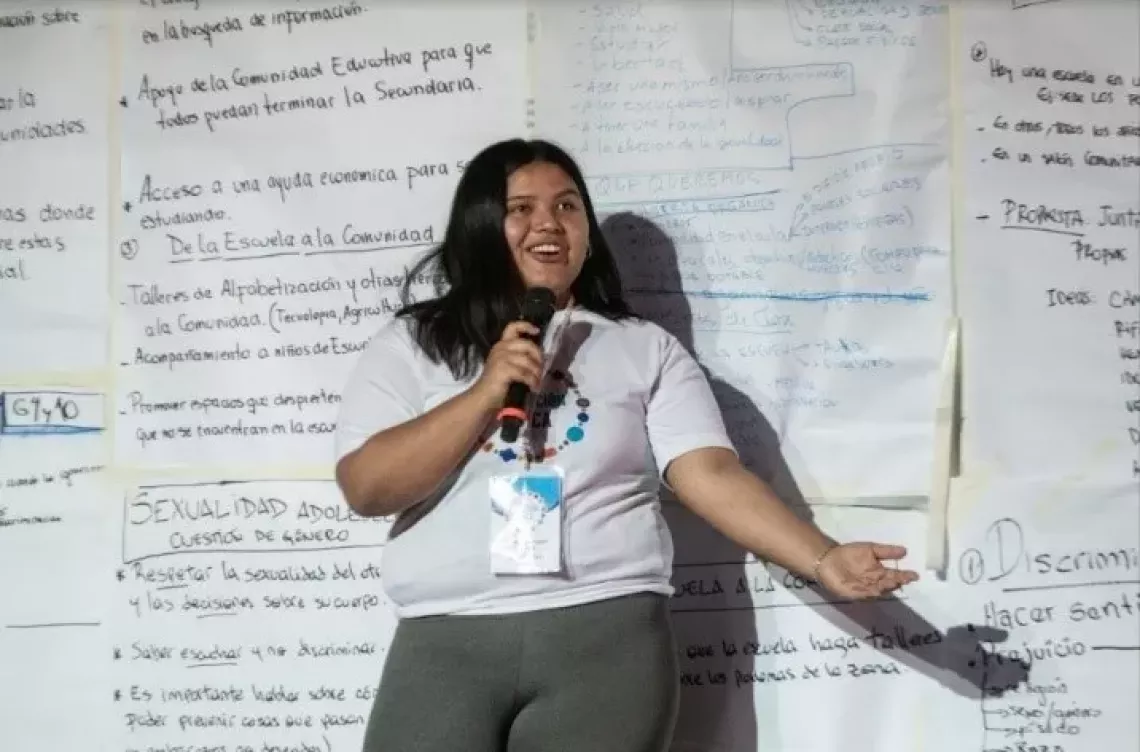
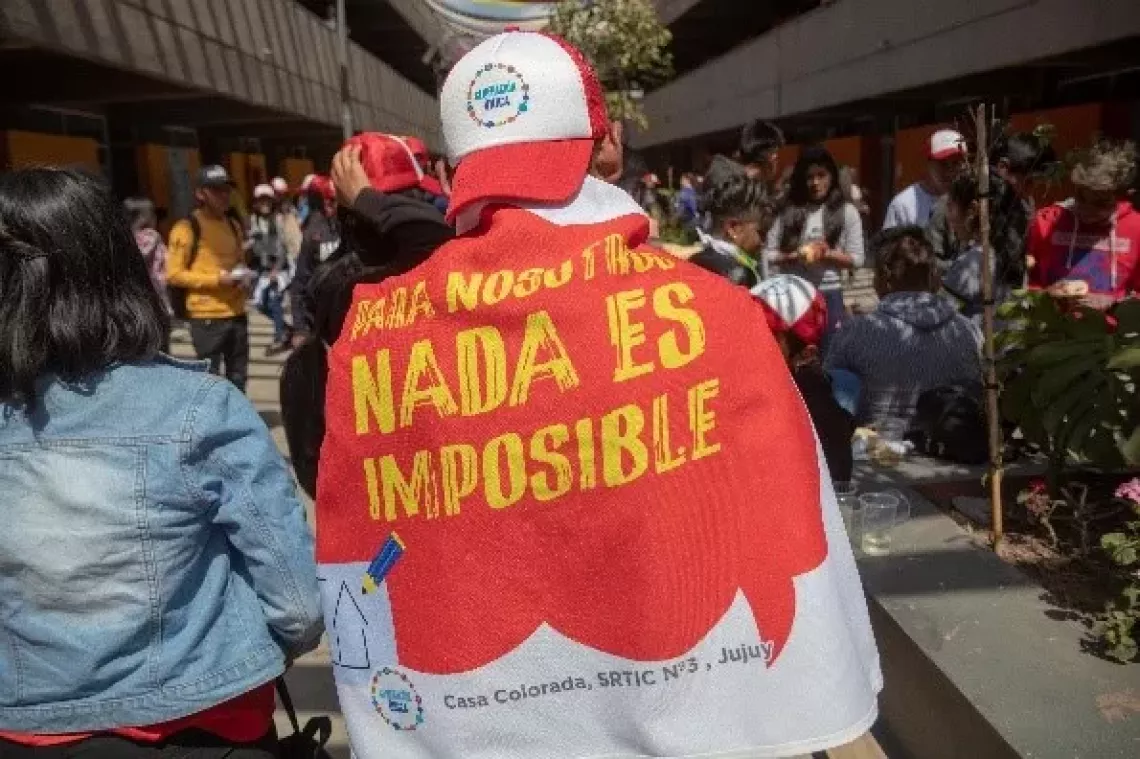
The legacy of school graduates
Also, the gatherings were attended by adolescents who graduated from technology-based rural secondary schools. “I loved to be invited and to be able to tell the girls and boys present that they should go on even if it is difficult, because studying is the only tool that nobody can take away from us,” said Agustina Churquina, a graduate from Madrejones, Salta.
“I attended school for 5 years and graduated in 2014. I am very grateful. At first, we started with a notebook and a pendrive, but now we can use the PC, create documents, research on the Internet. We are very grateful for the work done by tutors and teachers. When I finished high school, I got a job as an indigenous assistant teacher at my school and I am enthusiastic to see its growth. Many girls and boys will graduate this year. Marcio and Nicolas Ortega from San Ignacio school, mbyá-guaraní community in Misiones.
Kevin graduated a year ago from Las Escaleras SRTIC Nº 2 in Jujuy. At present, he is studying Business Administration at the National University of Jujuy and feels that he was not mistaken when he chose that career, although at the beginning it was difficult to adapt. “I am not thinking about dropping out this program; it is the right thing for me”, he affirmed.
“For us nothing is impossible”,
“We study to defend our culture”,
“In rural areas, we can continue to study”,
“Having children does not prevent us from studying”
These are some of the phrases suggested by the girls and boys to design the flags and handkerchiefs they took to their community after each gathering.
Technology-based rural secondary schools are a model that was recognized at the United Nations General Assembly in 2018 (link to HF video) as an innovative initiative to ensure access to secondary education in remote rural communities. For that reason, each boy and girl student from each of the 91 distant rural locations are part of #GenerationUnlimited (#GeneraciónÚnica), who has ideas and enthusiasm, dreams and life projects for themselves and for their community.
“The secondary school in my community taught me to share, work as a team, make an effort. I would like for more boys and girls to take the courage to study, to make an effort in order to have a promising future; I know that they will make it because we are all equal”. The words uttered by Agustina, Kevin and other boys and girls who finished secondary school resonated among those who are in their final path and are preparing to benefit from the tools offered by the school, to continue on with their studies, have more and better opportunities and fulfill their dreams, because “completing secondary school should not be the ultimate goal” for them.
“I loved to be able to meet the boys and girls from other schools, from other provinces. I really liked everything I learnt. We loved to share all we do at school and to tell each other about it”. These phrases were heard again and again at the farewell amid hugs and smiles. While they were loading the kits each school took with them, including table games, balls and sports vests, they exchanged their phone numbers to continue in contact with their new friends. Working in strategic partnerships to foster innovative educational models is working to accelerate SDG results foresee for every adolescent for 2030.

